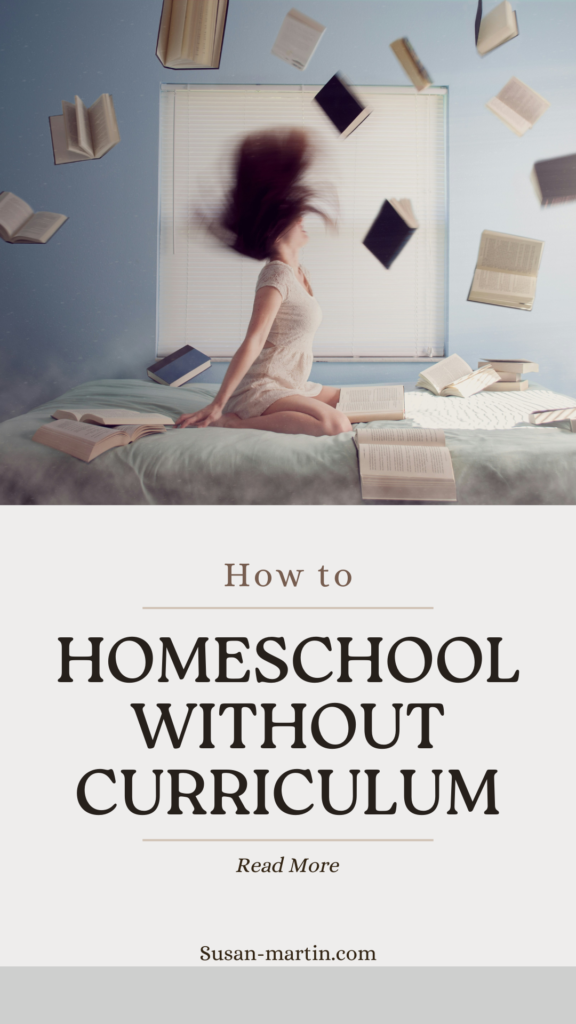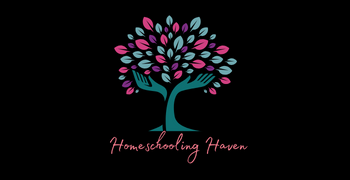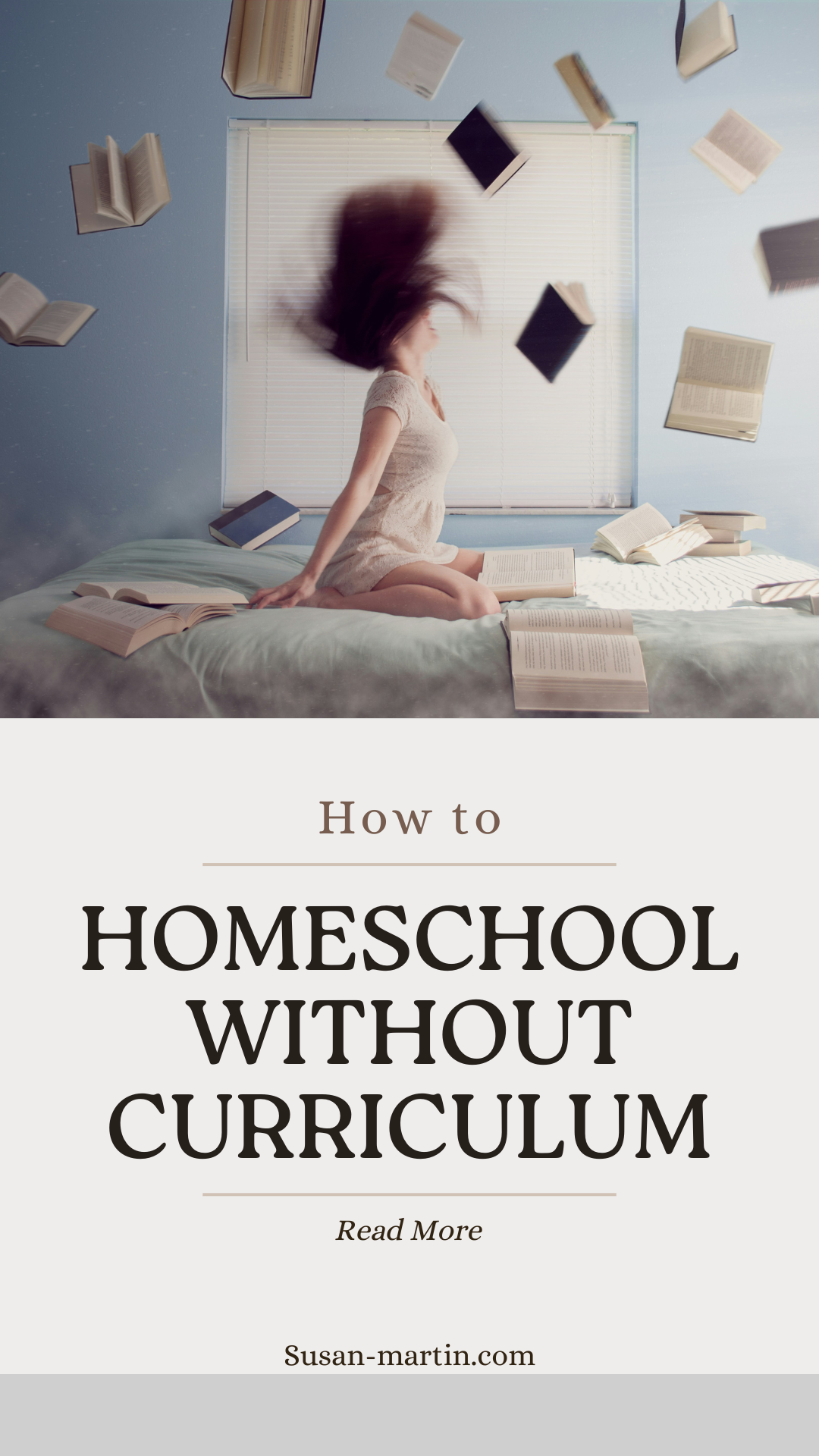The first question most brand new homeschool moms (and dads) ask is, “Which curriculum should I use?!” There are so many to choose from and how do you know which one is best for your kids with their unique learning styles and needs? If you haven’t already, pop over here to read on how to find the “perfect curriculum”. I’ll be here waiting when you get back.

Now for the subject at hand… How could you homeschool without a curriculum? All willy-nilly with no guideposts, tests, or grades… That seems daunting if not nearly impossible! Can you really trust interest-led learning to cover all the bases in their education? Why would you just hand control over to the student?! How will they not fall behind? In this post (and others), I will answer these questions and the underlying fears that cause them. Hopefully, I will also offer some peace and guidance on this topic.
Education Time Machine
Firstly, let’s go back 150 years or more. Consider the likes of George Washington, Benjamin Franklin and even Leonardo DaVinci. The vast majority were home educated and unschooled. By “unschooled,” I mean that they had no formal education at an institution. Rather, they would’ve learned reading, writing and arithmetic from their mothers and pursued their interests as they embarked on a journey of discovery. History was passed down by older generations. Science was learned by experimentation and apprenticeship. There were no curriculum options. Mothers taught reading and writing in the same way they taught cooking, the family trade and integrity. Education was woven into every day activities rather than consumption of useless, unrelated facts.
Do yourself a favor and read Dumbing us Down by John Taylor Gatto. (In fact, read any of his books.) You’ll be astounded by the history of our public school system. Or maybe you’re already convinced that public schooling is the demise of our modern education.
A Broken System
If you have come to the conclusion (as I and many others have) that public education is at fault for the dropping literacy rates nationwide, plummeting overall critical thinking & deductive reasoning skills and complete lack of creativity in recent generations, then why on God’s green earth would we mimic that same broken system to educate our kids at home?! Why try to recreate the public school setting that wasn’t working and bring it into our dining rooms? Why would we compare ourselves to the government-funded, ill-equipped school system via standardized testing or degrading comparisons?!
Let’s instead snap the faulty measuring stick of institutionalized, non-creative conformity in our homeschools!
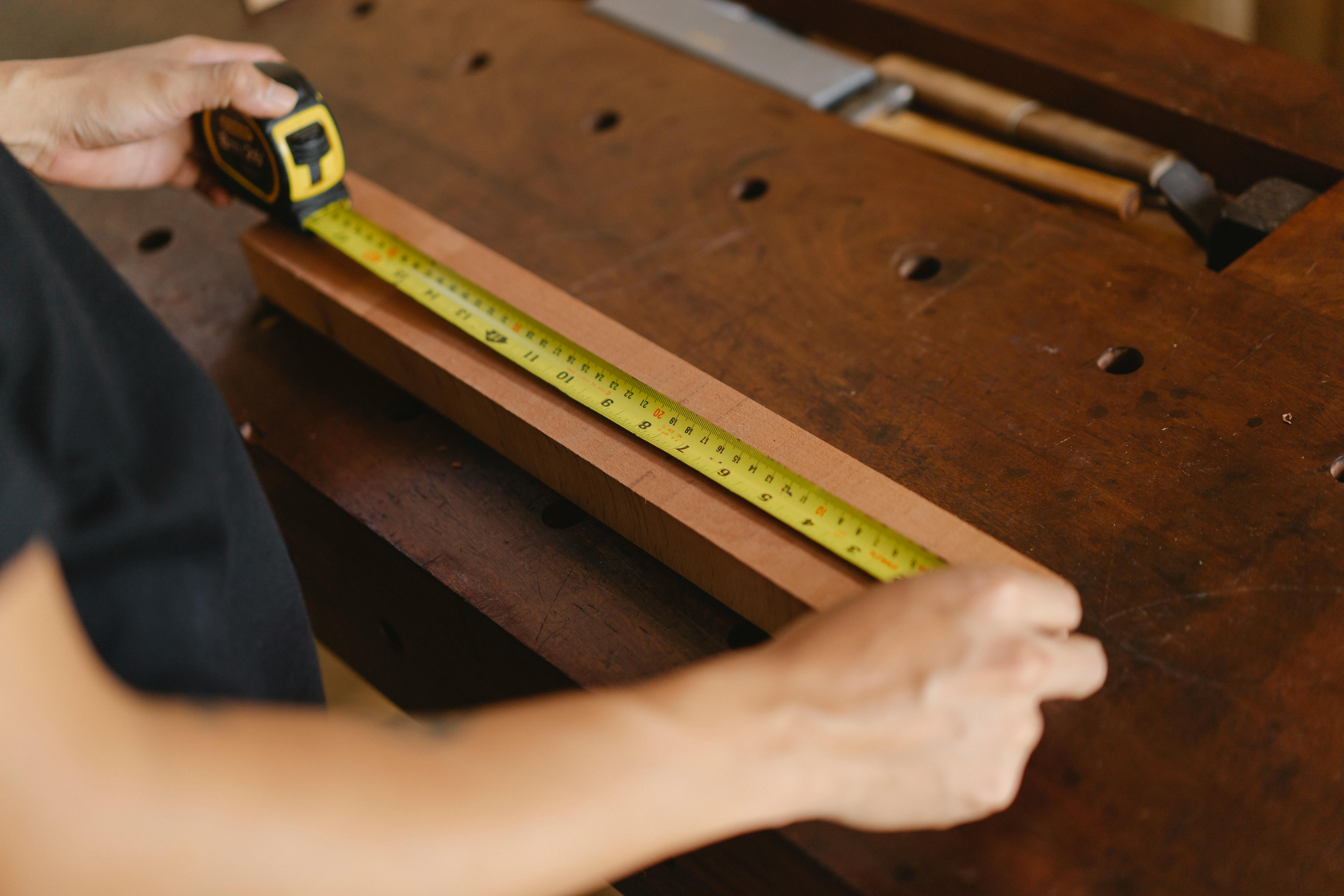
I don’t know about you, but I pulled my kids out of the public school system because it was failing them miserably! The classroom structure, as most of us recognize, is not designed for energetic and inquisitive children. Truthfully, it’s not made for discovery or allowing true creativity. It’s intended to create workers who don’t question authority, stay in their lane and are satisfied with consumerism and status quo. Think about it… Were you allowed to challenge beliefs like evolution or the telling of history? NO! That’s insubordination that will get you sent to the principal’s office or expelled!
Now consider your homeschool. What do you want to develop in your children through their education experience? One of the first things I naively wanted was for my son to be curious and have critical thinking skills. Ironically, that meant that by high school he started forming his own opinion about things in the world and challenging ME! And I had to become comfortable and even welcoming to respectful inquisitions.
Side note: Disrespectful defiance is a different topic altogether. I’m talking about questions like, “Why do we have to do it that way?” and “Could I try running the table saw?” or “What’s the point of learning Calculus if I’m not interested in higher education?”
It’s good and healthy for our kids to exercise those muscles in a safe environment.

How Humans Learn
Most importantly, I want my kids to grow a love for learning. We have more information available to us than any previous generation, yet the general population is dumber than ever before! Why? I hypothesize it’s because they were conditioned during their 13 years of schooling to believe that learning is boring! Through unengaging modalities, dry lectures and *gag* textbooks, the thrill of discovery and interest was successfully removed.
Finally, consider how your kids have learned prior to school age. And moreover, how do you learn post-school? I don’t know if you’ve noticed, but kids learn without being taught how to. They’re little sponges. The baby learns to crawl and talk. The toddler starts walking and pointing out colors. They just learn all about the world around them, full of wonder and delight. What if education looked more like that?!
Education Gaps
The truth is everyone has gaps in their education. No one graduates high school knowing everything! So put that fear right out of your head. Even as adults, we don’t know all the answers, but we are resourceful. When I needed to know how to recharge the freon in my vehicle, I went to YouTube. If there’s a gap in my education, I’m unaware until I need that piece of knowledge, at which point I seek out what I need to know. Notice I didn’t go to a 2 year auto trades certification program to learn to work on my car… I just found the one piece I needed. And that’s how most learning actually works!
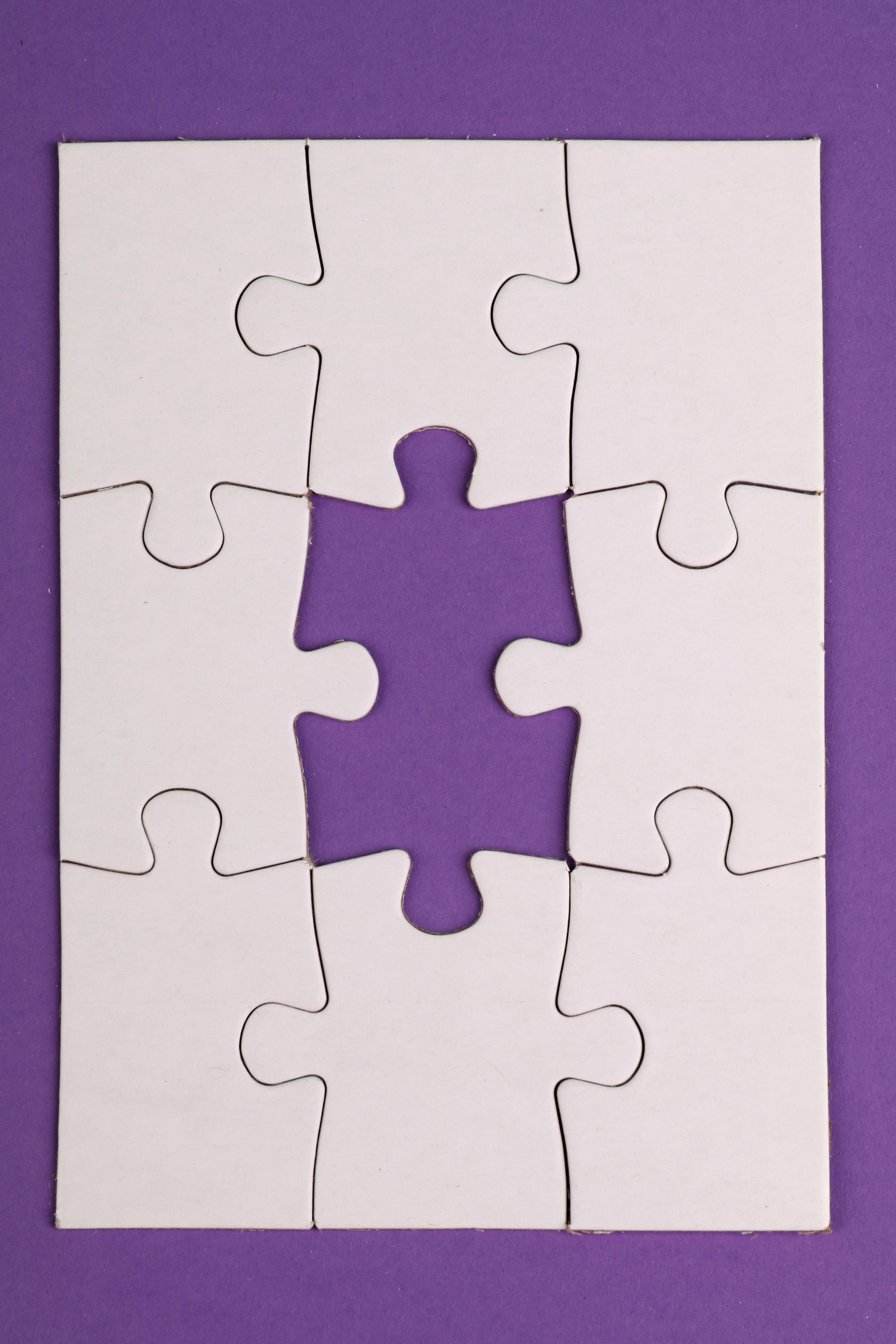
One of the great misconceptions is that our job as educators is to fill a child’s empty cup with knowledge and bites of information. This is where many moms sit up at night, panicking about how they’ll ever teach their children material they don’t even recall from their own education. However, our goal should be to give them tools and teach them to use those tools to dig out the information when they need it. Teach them to read and show them where they can go to learn about any topic (how to utilize the library or a search engine). Teach them critical thinking skills and how to determine if the information they receive is factual. Discernment and free thinking skills are far more valuable in this world than memorizing the Periodic Table for the simple sake of memorization.
You’ve Got This!
So before we get hung up on names of learning styles and teaching methods, let’s take a deep breath. Who taught your kid to speak? And who guided them toward their first steps? Who explained what colors are? That’s right, you did. So who told you you’re unqualified to teach them basic math and how to write their name simply because you didn’t get a 4 year degree from a compulsory institution?! You can do this! You are qualified. God entrusted your children to you for a reason!
And just like in parenting, as the problems get more difficult and complex, you’ll both grow as students, educators and lifelong learners together. But don’t worry about Calculus just yet. Take it one step at a time.
Disclaimer
I started my homeschooling journey with textbooks and curriculums, sure to cover every subject the public school had insisted we needed. We had them all neatly compartmentalized. Math separate from Science which of course were both separate from History and Literature. Everything shattered into bite-sized, irrelevant pieces. But as we continued on this journey and I learned what didn’t work for us and what did, we gradually embraced an all-in-one curriculum and then eventually stepped out into relaxed rhythms rather than checking lists and filling in blanks. And finally, here we are educating with hardly any formal curriculum at all!
“Doesn’t that freak you out?!” you may be asking. And over a hot cup of tea, I would say, “Honestly…. Sometimes it does.” I personally like checklists and seeing that a set of tasks has been completed. It makes me feel accomplished. I will even write something down that I’ve already finished just so I can cross it off as DONE!
But that expectation stresses my kids out and then we fight about what “has to be done…” It causes undue pressure instead of letting their desire to learn lead the way. When we shifted to pursuing their interests, they fell in love with learning, took their education more seriously and *crazy concept* they actually retained what they learned because they wanted to learn it and it was FUN. I’m learning to trust the process. And so the teacher has become the student.
Kids are constantly learning whether we push them to or not. Lean in to their natural curiosity and suddenly education becomes far more enjoyable for everyone!
Deschooling
If you’re brand new to homeschooling, I strongly advise that you (as do most other seasoned homeschoolers) take six months to one year to detox from the system. We call this “Deschooling.” Do NOT. I repeat, do NOT go curriculum shopping! Back away from the textbooks slowly. Instead, focus on nature walks, connecting as a family and going to the library, zoo or museums. Listen to your kids and discover what they love. “But what if they fall behind in XYZ?!” I can hear some ask in a panicky tone. Don’t worry, my friend, they will excel in leaps and bounds when you get this first button in the right hole. Besides, we already broke that public school measuring stick, remember?
A few years ago, a fellow homeschool dad told me, “If our kids are strong readers and can do basic, everyday math, they can figure out the rest.”
What’s the ACTUAL Goal?

I know some of us want them to have an education worthy of a full ride scholarship to any Ivy League university. But is that your child’s dream? And are we putting undue pressure on young kids for the sake of our own comparison issues.
I feel this same ugly comparison creep up at every Christmas dinner when my brother boasts about his children’s far superior private Catholic school education and all the sports and lessons his kids are in as he’s been preparing them for full ride sports scholarships since they could walk. But then I think of all the intense pressure to perform his 12 yr old must feel and think is normal. I wonder what my nephew is actually interested in if not performing for his dad’s approval.
Conversely, I cherish the long walks with my kids as they stop to study each plant in nature, smell the flowers and identify poisonous plants. They’re full of curiosity and wonder. They’re learning at every turn. This information will stay with them all their lives because of the fond memories tied to it and usefulness and interest in the topics. And if any of them are passionate about sports or higher education, we’ll explore that with the same discovery process. The desire to achieve and get a university degree will come from within them, not from the external pressure I place. (As a side note, I was homeschooled and scored a 23 on my ACT without studying because that was my goal, not my parents’.)
We’ve been fooled into thinking the goal of education is to gain more education. But shouldn’t the result of learning be knowledge, compassion and character growth?!
Parenting Goals
When I was pregnant with my first child, I remember thinking my goal would be to raise contributing members of society. As I grew, my mission as a parent expanded to “Raising compassionate contributing members of society who fully embrace their unique gifts to make a mark on this world for the better.” That sounds like an impossible goal, but homeschooling and focusing on character development has led us to cultivate this very sort of environment in our home. No we’re not perfect and our house is often joyfully noisy and messy. But we all are learning to be kind and call out the kings and queens within each other.
Homeschooling is not about DOING, but about becoming.
A Beautiful Tapestry
Homeschooling is where parenting and education merge into one beautiful tapestry of discovery and growth. No textbook can teach my children compassion and kindness. A textbook/curriculum tells us what to learn and when. And while that might seem comforting to a new homeschooler, it doesn’t give the learner room to discover who they are and what they love! So set aside the books and break out the baking supplies or go for a nature walk. Read aloud to them (yes, even if they can already read for themselves). Go to a museum or library and listen to their long, detailed stories (developing mom’s patience at times). Connect heart to heart with your children and watch them blossom! Take time to connect and get to know them. Let them be their unique version of human being.
What’s your favorite way to connect with your children? Tell me in the comments!
